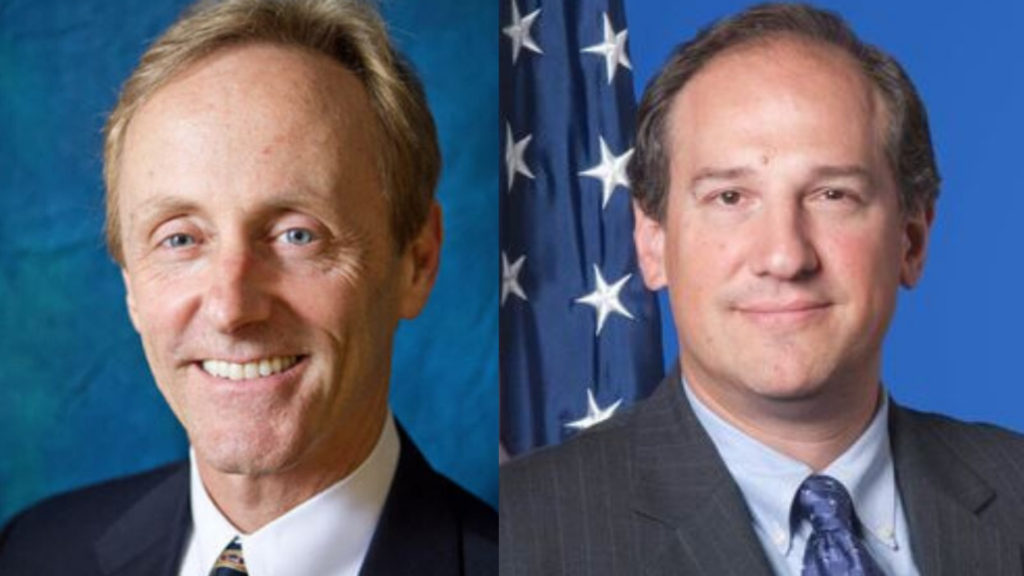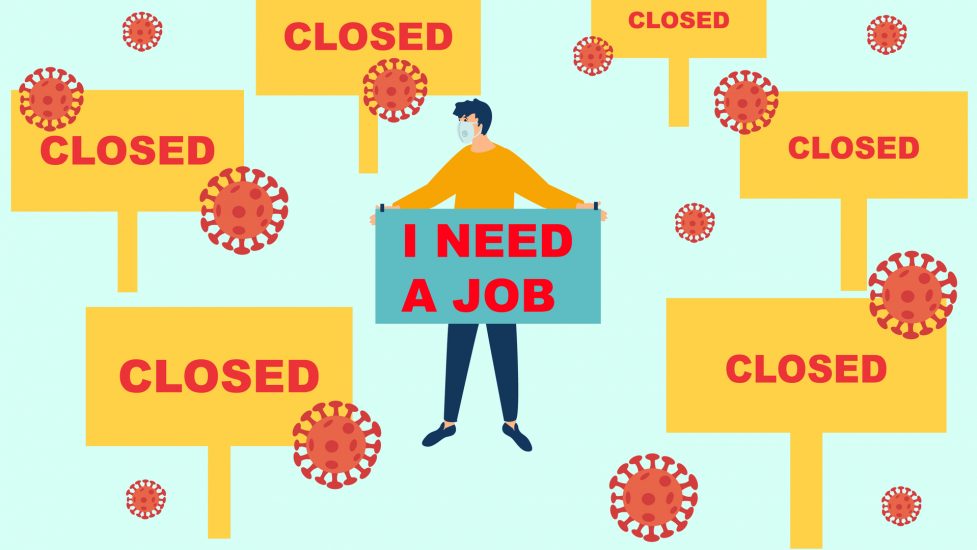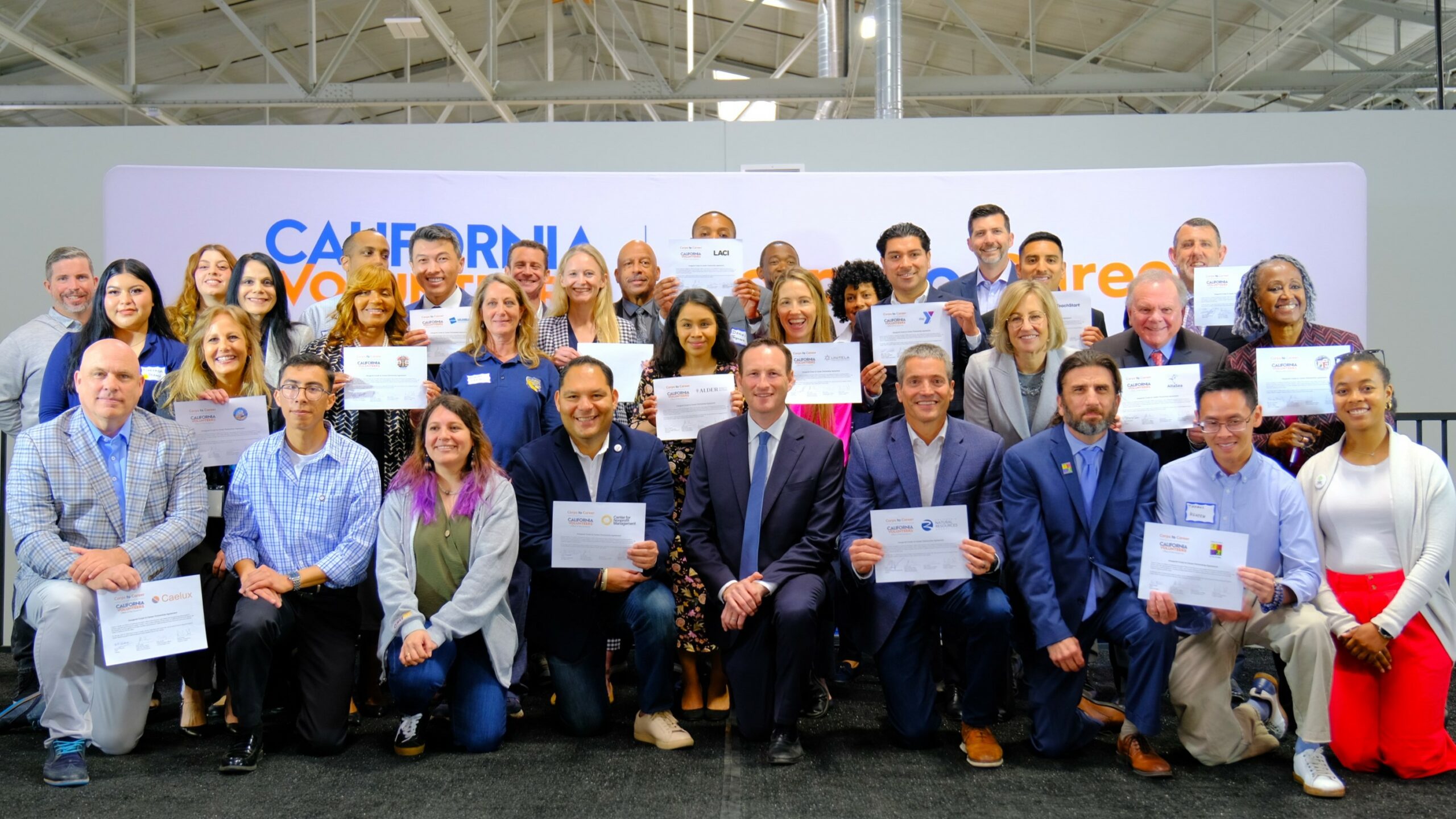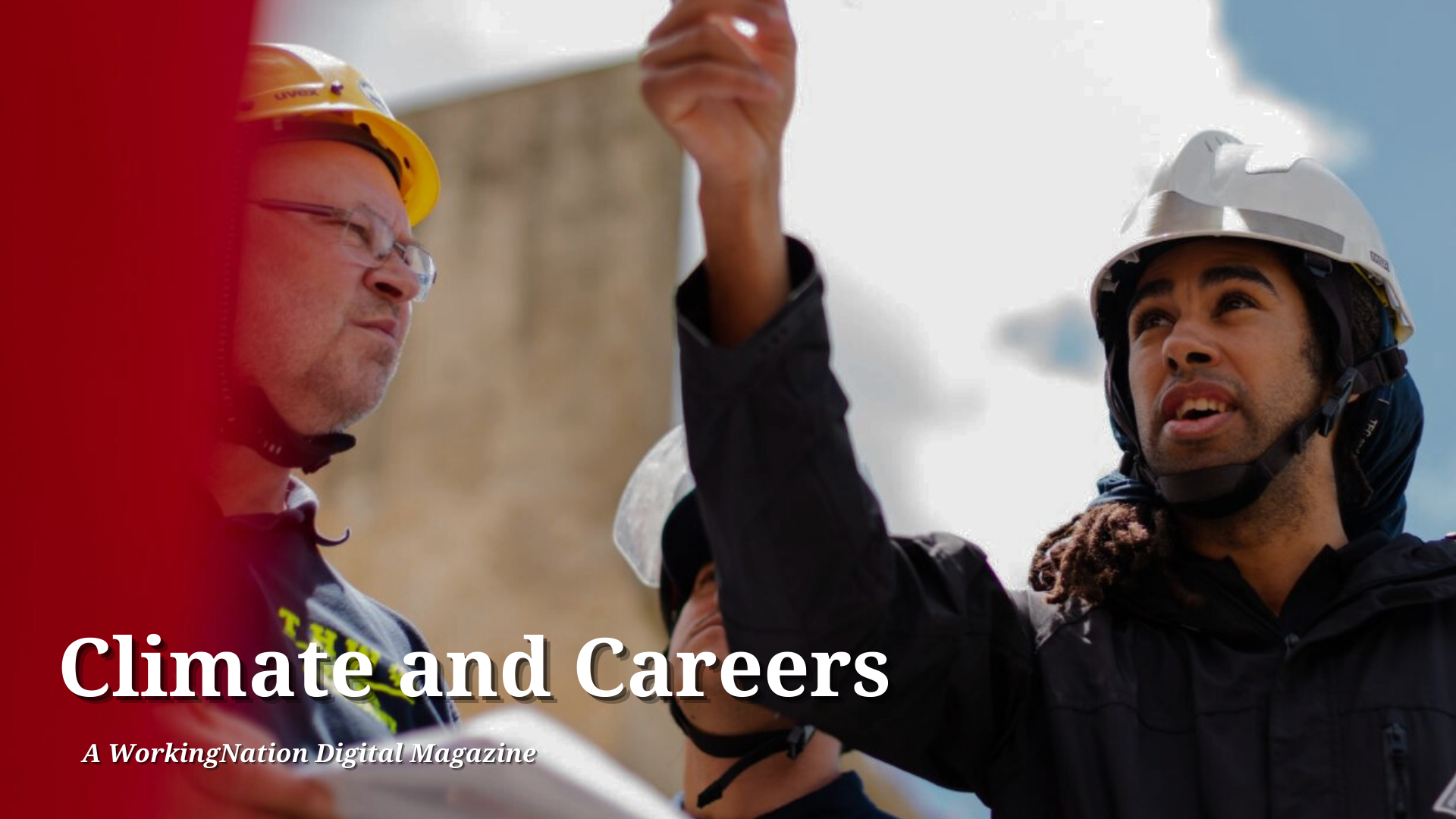Unemployment spread in March as people across the country were asked—or ordered—to stay home to stop the spread of the deadly coronavirus. A record 6.65 million people filed a new jobless claim last week, bringing the total to more than 10.4 million for the month of March. The Bureau of Labor Statistics will release its March jobless rate Friday. Economists forecast it could spike to as high as 10 percent, compared to 3.5 percent in February.

“We’re all feeling a little bit of economic whiplash,” says Erica Burns, Senior Vice President of Whiteboard Advisors. “We’ve gone from a historic run of job growth to a record rise in unemployment” and the world is experiencing “a time of immense uncertainty.”
On Wednesday, Whiteboard Advisors brought together labor and education experts for a discussion on how employers and workforce training providers are responding to the COVID-19 jobs crisis.
“Unprecedented Times”
Johnny C. Taylor, Jr. is President and CEO of the Society for Human Resource Management (SHRM). SHRM operates a global call center that fields inquiries from both employers and workers. Taylor says, “We’re consistently hearing from people who are less afraid of COVID-19, and more concerned about what it will mean for them going forward, and their children, and their livelihoods.”
Taylor says learning and development will continue to be just as essential as it was before COVID-19. He says, “Eighty-seven percent of HR professionals believe certain measures implemented in response to this crisis such as work from home flexibility, and paid leave options will become part of the new standard operating procedure.”
He adds, “What we’re seeing is that in some ways, COVID-19 has forced us to maybe fast track some of what we needed to do to be smart in the 21st century.”
Maria Flynn, CEO at JFF, says the pandemic is impacting workers and businesses in numerous ways. She says, “It is so widespread in terms of geography and industry sectors—coupled with so many unknowns.”
Flynn says, “We went through 3 to 5 years of a golden age of workforce when we had a booming economy. Corporations were really stepping up in some exciting ways.” She hopes that past employer behavior is a positive indicator of what the future holds.

According to Josh Bersin, a global human resources industry analyst, says, “I do think despite the health crisis and the safety crisis that we’re all experiencing personally, this is essentially a big reset in the economy. We’re all adapting very, very quickly, much faster than we probably realized we could. He adds, “Every major company is accelerating their digital transformation at lightning speed.”
Seth Harris—a Senior Advisor at Whiteboard Advisors—is former Acting U.S. Secretary of Labor. He says in advance of employment figures being released Friday by the U.S. Bureau of Labor Statistics, “projections by some very talented labor economists tell us that we may already be at an unemployment rate in the 17 percent range and it may climb in excess of 20 percent.”
Harris says, “All across America, there are millions, maybe tens of millions of workers, who are worried about how they’re going to pay their bills, save their houses, stay in their apartments, feed their kids, keep their Internet going so their kids can go to school remotely. They’re really unsure about their economic future.”

Looking Forward
Harris says the stimulus funding is imperative. He says “The government has to put money into the hands of the people who need it most. It is the surest way to get the money moving through the economy. If you give a dollar to an unemployed worker, they’re going to turn right around and spend that dollar. The store at which they spend will turn around and use it to buy more supplies. Farmers will use it to pay farm workers. And so it ricochets through the economy.”
Flynn says this challenging time is also an opportunity. She says, “The re-employment system can be much more fluid by acknowledging different solutions like digital, credential platforms. Companies can really focus on skills-based hiring. They can double-down on looking at talent in new ways, and not only using a degree as a signal.”
She adds people should not be going through training programs that don’t lead to in-demand jobs. Flynn says, “We can’t be simply driving folks to training programs that aren’t going to matter. We don’t want to move backwards into a ‘first out, last in’ hiring scenario.”
Bersin acknowledges over the last decade, there has been an explosion in training, skilling, online learning, and self-development. He says, “Companies are getting to the point now where they can hire somebody that may not look like the right fit for the job. But if you know they have the right sort of ambition, we can train them on the job.”
Addressing the human side, Bersin says, “Executives have to be empathetic and caring in a people-centric way.” That will require more heavy lifting from human resources, according to Bersin. He says, “It isn’t the bankers that are going to solve the problem—it’s HR who are going to find solutions.”
Looking forward, Taylor says, “We are resilient people. Much of our resilience comes out of our ability to see the positive.”
You can listen to the full discussion here.











